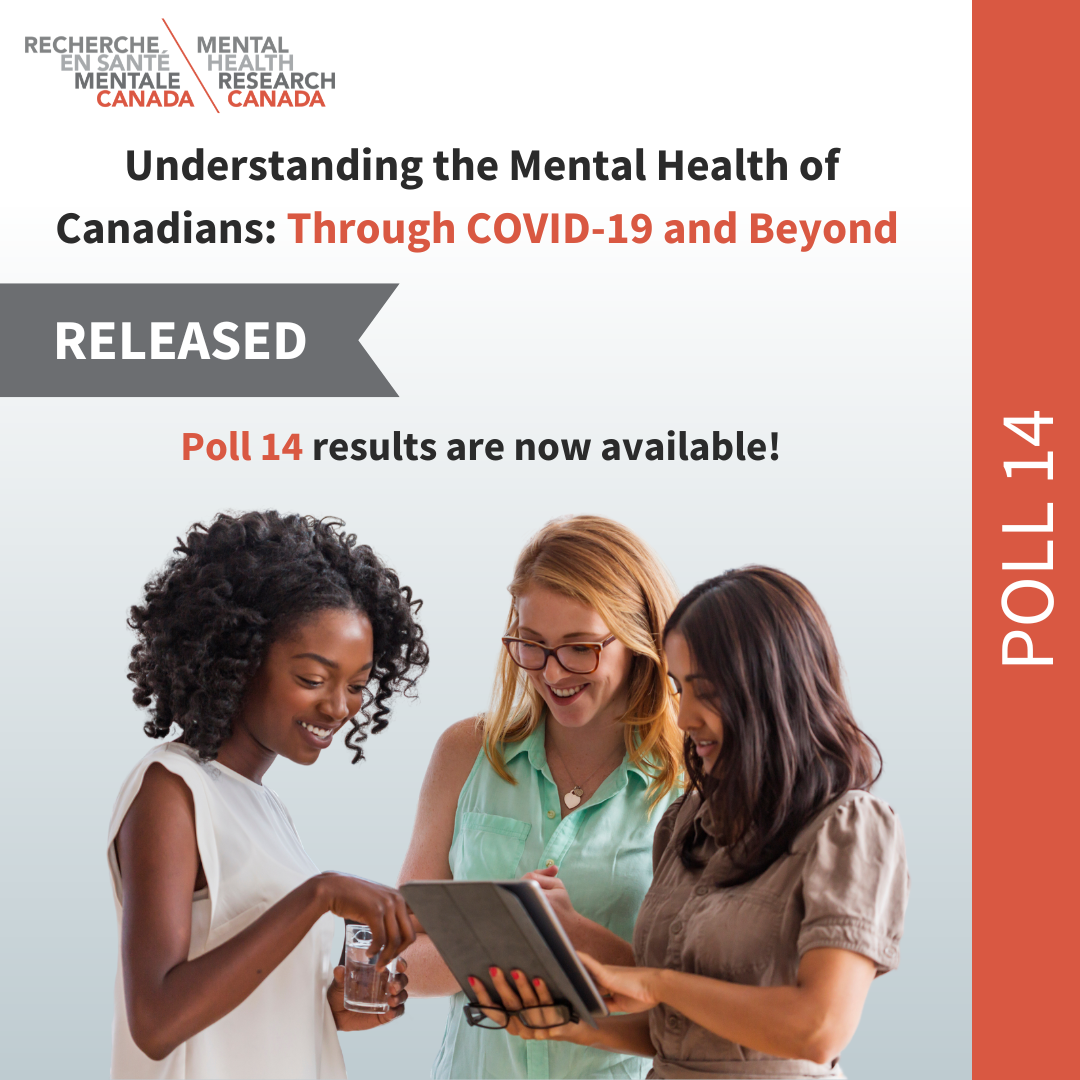Findings of Poll #14
Read the full reports:
ABOUT THE STUDY
This study was conducted by Pollara Strategic Insights with an online sample of 3,500 adult Canadians and was conducted between October 21 to November 1, 2022. Results from a probability sample of this size could be considered accurate to within ±1.8 percentage points, 19 times out of 20. Results have been weighted based on age, gender and region to be representative of the Canadian population.
A series of research briefs that provide an in-depth, specific investigation of our polling results can be found here. Results of earlier polls are compared when applicable.
Findings from our polls are searchable on our free Data Portal.
As we move into the pandemic’s recovery period, MHRC is shifting its focus from mental health as it relates to COVID-19, to a more current and ongoing approach.
Self-reported symptoms of anxiety and depression have slowly been improving; however new challenges, such as inflation and food insecurity, are negatively impacting the mental health of Canadians.
Additional findings from Poll 14 include:
A quarter of Canadians remain exhausted and burnt-out (higher among students and working Canadians, lower among retirees), although hopefulness remains high.
The mental health of Canadians is demonstrating slow, consistent improvement, with self-rated anxiety and depression slowly improving as we emerged from the pandemic.
Atlantic Canada is, for the first time, reporting the highest levels of anxiety of all the provinces (15%); however, it is noted our poll was taken around the time of the recent hurricane. Quebec continues to report the lowest levels of self-rated anxiety (7%) and depression (4%).
Of the just over 15% of Canadians who have needed mental health support in the last year (whether they accessed supports or not), over half indicated that those needs were not or only marginally met. Primarily, cost and wait times are cited as barriers to adequate support.
The above are just some of the key findings of MHRC’s fourteenth poll, part of a multi-year effort to track the mental health challenges of COVID-19 and beyond.

